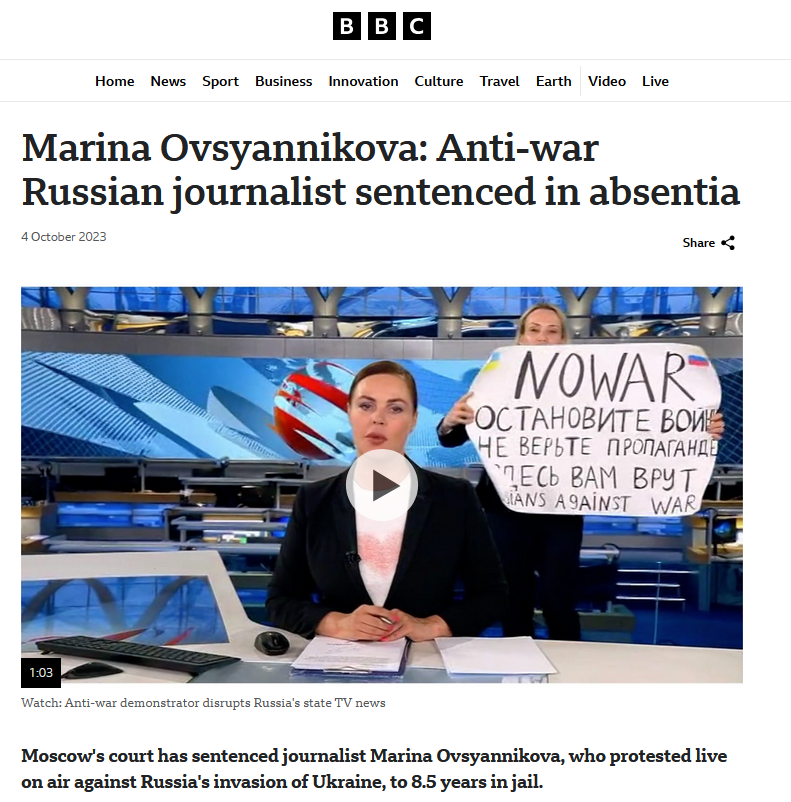In today’s #vatniksoup I’ll introduce a Russian filmmaker, Anastasia Trofimova. She’s best-known for her latest controversial documentary “Russians at War”, and for working as a producer for Russian state-funded media outlet RT.
1/19
1/19

Soft power has been part of the Kremlin’s hybrid warfare for a long time. It refers to the “ability to get what you want through attraction rather than through coercion” and which can “be cultivated through relations with allies, economic assistance, and cultural exchanges.”
2/19


2/19


Russia has been using soft power to sow division and distrust in the West for decades. Documentaries like Ukraine on Fire offer a revisionist and pro-Kremlin view on what happened in Kyiv and in Ukraine in 2014. It was directed by the Russian master…
3/19
3/19

…propagandist and LA resident Igor Lopatonok and also featured Oliver Stone. The film was premiered at the Taormina Film Festival in Italy. GRU-connected Dutch Bonanza Media has also produced several documentaries whitewashing Russia’s crimes against humanity.
4/19
4/19
Latest addition to Russia’s soft power propaganda is Anastasia Trofimova’s documentary, “Russians at War”. The film’s public premiere was at the Venice International Film Festival, which caused a huge backlash in the West and especially in the Ukrainian community.
5/19
5/19

Trofimova is an experienced filmmaker, and she worked as a producer for Russia’s state-controlled RT for 7 years.
"Russians at War" was funded with both public and private Canadian funding, and in total it received at least 260,000 USD from these sources.
6/19



"Russians at War" was funded with both public and private Canadian funding, and in total it received at least 260,000 USD from these sources.
6/19



In the film, Trofimova enters Eastern Ukraine illegally and interviews Russian soldiers 180 km behind the front lines. According to The Moscow Times, the Russian soldiers were motivated by “vague patriotism”, “avenging fallen friends”, and, of course, money.
7/19
7/19

Most of the soldiers Trofimova interviewed were sent to the Bakhmut meat grinder, but somehow she missed all the violent criminals & forcibly drafted foreigners from countries such as Nepal, who were then used as meat walls by the more experienced Russian units like Wagner.
8/19

8/19

The filmmaker gave an interview to local Russian media, which provides some insights on the filmmaking process and her worldview. These excerpts were translated and published by @TriggerLRSSG, and their thread on the topic can be found here:
9/19
9/19
https://x.com/TriggerLRSSG/status/1834063671422828906
First of all, the Russian authorities and intelligence services have heavily cracked down on any video or audio recordings in the temporarily occupied regions. Recently, they’ve made dramatic gestures and demonstrations against any cell phone use.
10/19

10/19

Second, it is nearly impossible to go to the temporarily occupied territories in Eastern Ukraine, alone spending seven months relatively close to the front line and interviewing Russian soldiers freely about the war, without the knowledge of Russian intelligence agencies.
11/19




11/19




Trofimova also said that all of the footage she recorded passed through the authorities of the made-up state of Luhansk People’s Republic, whom Anastasia described as “very nice” and “funny”, and that she learned a lot about “political life in Ukraine”.
12/19
12/19

Trofimova also claimed that she didn’t witness any war crimes while doing the film. The main reason for this was probably that she was far away from the front lines. According to Kyiv Independent, the Russians have committed over 150,000 documented war crimes.
13/19
13/19

It also seems that Anastasia is not immune to propaganda - she’s claimed that Russia “hasn’t participated in wars for many years,” neatly forgetting wars & occupations in Transnistria (1992-93), Abkhazia (1994-96), Chechnya (1999-2009), Georgia (2008) & Syria (2015-2022).
14/19
14/19

In Venice, Trofimova also took the time to criticize Olha Zhurba’s documentary Songs of Slow Burning Earth about the war in Ukraine. According to Anastasia, she wasn’t “that much of a fan” of the ending, as it “contrasted Ukrainian kids and Russian kids,…
15/19
15/19

…with Ukrainian kids thinking about what they can do to build a better Ukraine for the future, and Russian kids were just shown as marching and singing war songs.” According to her, the film depicted Russians as ”aggressive and awful people".
16/19
16/19

I personally find Trofimova’s “both sides” narrative problematic, because in this genocidal war we can clearly name the invader (Russia) and the defender (Ukraine).
Perhaps this is due to Trofimova’s willingness to return to Russia one day.
17/19
Perhaps this is due to Trofimova’s willingness to return to Russia one day.
17/19

Toronto Film Festival eventually had to cancel the screening of “Russians at War” (which they described as “a spellbinding tale of sacrifice and disillusionment in which soldiers resemble pawns in a nefarious game”) due to massive backlash from the Ukrainian community.
18/19




18/19




Trofimova has described her documentary as an “anti-war” film, which should land her around seven years in prison in Russia. So far, the Kremlin or Russian authorities haven’t made any comments on the documentary.
I personally see it as a whitewashing propaganda.
19/19



I personally see it as a whitewashing propaganda.
19/19



My book titled “Vatnik Soup - The Ultimate Guide to Russian Disinformation” will be published on 20 Sep 2024, you can now pre-order it from here (comes with extra goodies!):
kleart.dk/webshop/p/vatn…
amazon.com/Vatnik-Soup-Ul…
kleart.dk/webshop/p/vatn…
amazon.com/Vatnik-Soup-Ul…
• • •
Missing some Tweet in this thread? You can try to
force a refresh

































